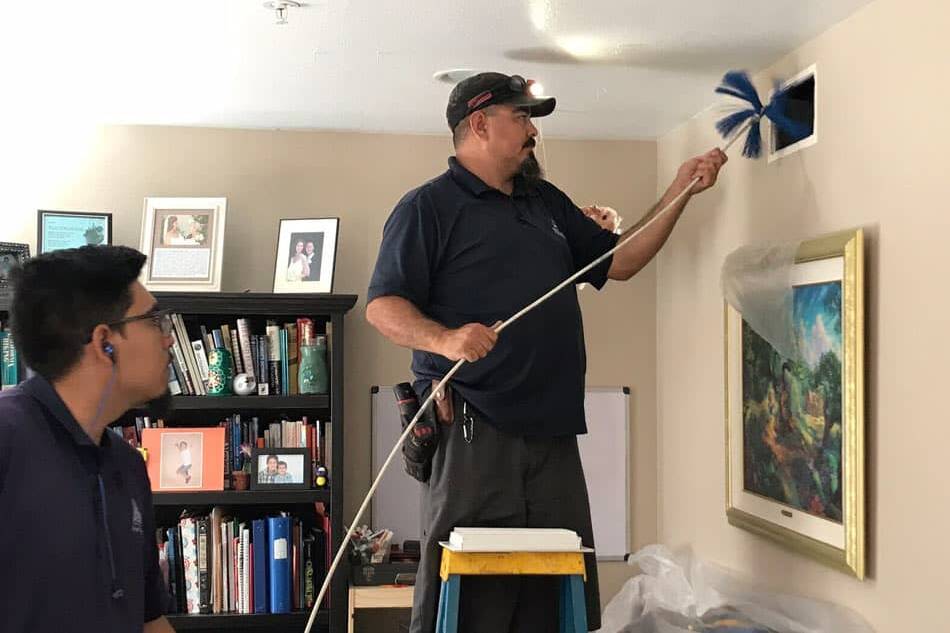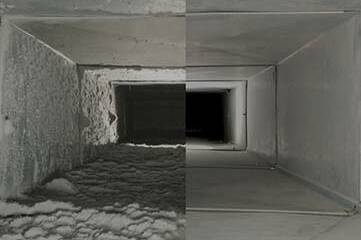(ORIGINALLY PUBLISHED IN INDOOR COMFORT NEWS)
People Who Complain
They’re called Whiners and Complainers.
Air conditioning contractors, their service techs, and building engineers know these people well – these “nit-pickers” in the buildings they service.
Maybe it’s an office building where a few staff are complaining of sore throats or recent illness. Or it could be a school with several teachers fussing about a “funny smell” and dizziness.
Whatever the complaint, these people point at the air conditioning registers and say, “I think it’s coming from there.”
Whiners and Complainers. Or are they?
I learned a little about this when I visited a cousin from the Midwest. I’ll call her Doris. The woman’s an absolute sweetheart. Honest, hard-working. The kind of person who is loved by all and gets things done on the job and at PTA meetings or church bake sales.
One spring Doris was wiped out for two months with debilitating headaches. The doctor ran her through four kinds of antibiotics before Doris realized what was happening to her. She wasn’t sick. Her workplace was.
The headaches had started after she moved into a basement office. Doris, who has a mold allergy, told her boss, “There must be mold in here giving me headaches. Can I work in a different space until we sort this out?” Shortly afterwards she found out the building’s basement had been flooded at one time. Then mold was found beneath the carpeting in an adjacent office.
And those headaches? They vanished when she changed locations.
A few years later Doris developed symptoms again – this time in her own beloved home. Mold had so pervaded her house that no amount of cleaning could remove it. She had to sell and build a new home from scratch. Again, the symptoms disappeared.
Does this mean that Doris is a whiner and complainer? Not at all. In fact, she hates the notion that she is a bother to anyone. The bottom line is that things in the air can and do make people sick.
What are Allergies?
An allergy is a remarkable thing. It is a negative response to something, called an allergen, taken into the body, that most people would not be sensitive to.
A person can be allergic to almost anything. I once saw a welt rise on my wife’s skin after I stroked her cheek with a single finger (after petting a cat, which my wife is allergic to). Foods are very common allergens.
Airborne allergens and pollutants are called inhalants. They enter our bodies through our mouth, nose, and lungs. These can include dust, mold spores (seeds), animal dander (particles from feathers, skin, or hair), or even smells.
Inhaled allergens have different effects on different people. Common reactions include a runny nose, sneezing, fatigue, headaches, dizziness, watery eyes, asthma, and even depression. However, because we all have unique bodies, some individuals may experience unusual responses to inhalants. In his book Brain Allergies, Dr. William Philpott tells of people who became psychotic from tobacco smoke.
One of the routine medical handlings for allergies is to avoid the allergens at home, in one’s food, and at work.
Indoor Air Pollutants
An air pollutant is simply something that dirties or contaminates the air one breathes. This can be particulate – particles of dirt, soot, rust, etc. Or pollution can be molecular – molecules of fumes, chemicals, foul odors, and such.
Pollutants differ from allergens. They don’t belong in one’s body and can cause a toxic or irritation reaction (not allergic) if the exposure is too high.
Still our bodies possess remarkable detoxifying systems for handling chemicals and particulates that we breathe in.
As with allergens, some people are more sensitive to pollutants than others.
The Air Conditioning Connection
Pollutants and allergens fill our air, especially in city living. They get sucked into air conditioning systems and are easily spread through our workplaces and living quarters.
Some of these invaders collect in the duct system or in the HVAC unit, where they spread (as with mold spores) or where they put out molecule-sized inhalants as air passes over them.
Thus, we get “funny smells” when the air conditioning or heating is turned on or workers complain of headaches or sneezing on Mondays when the air conditioner puts out a potent puff after lying dormant over the weekend.
Sometimes the buildup of allergens and pollutants in a system is simply due to the many years of airflow through it. Other times there are clear – and fixable – causes for the accumulation, such as mold growth from standing water caused by a clogged condensation drain or a return register that pulls air from a humid environment. Or odors caused by an intake register facing a highway or sitting over a copy machine.
Cleaning the ducts and unit can help considerably, especially if it includes a diagnostic check to ensure that any correctable causes are located. Good filters changed or cleaned regularly can improve air quality as well. And air testing is available to check for germ growth.
But most of all don’t write off the Whiners and Complainers too quickly. Yes, some people will unnecessarily complain about almost anything. But there are plenty of others who genuinely suffer from inhalant-induced health problems. And they are mighty grateful to those of us who listen to them and bring them the clean air they are asking for.


